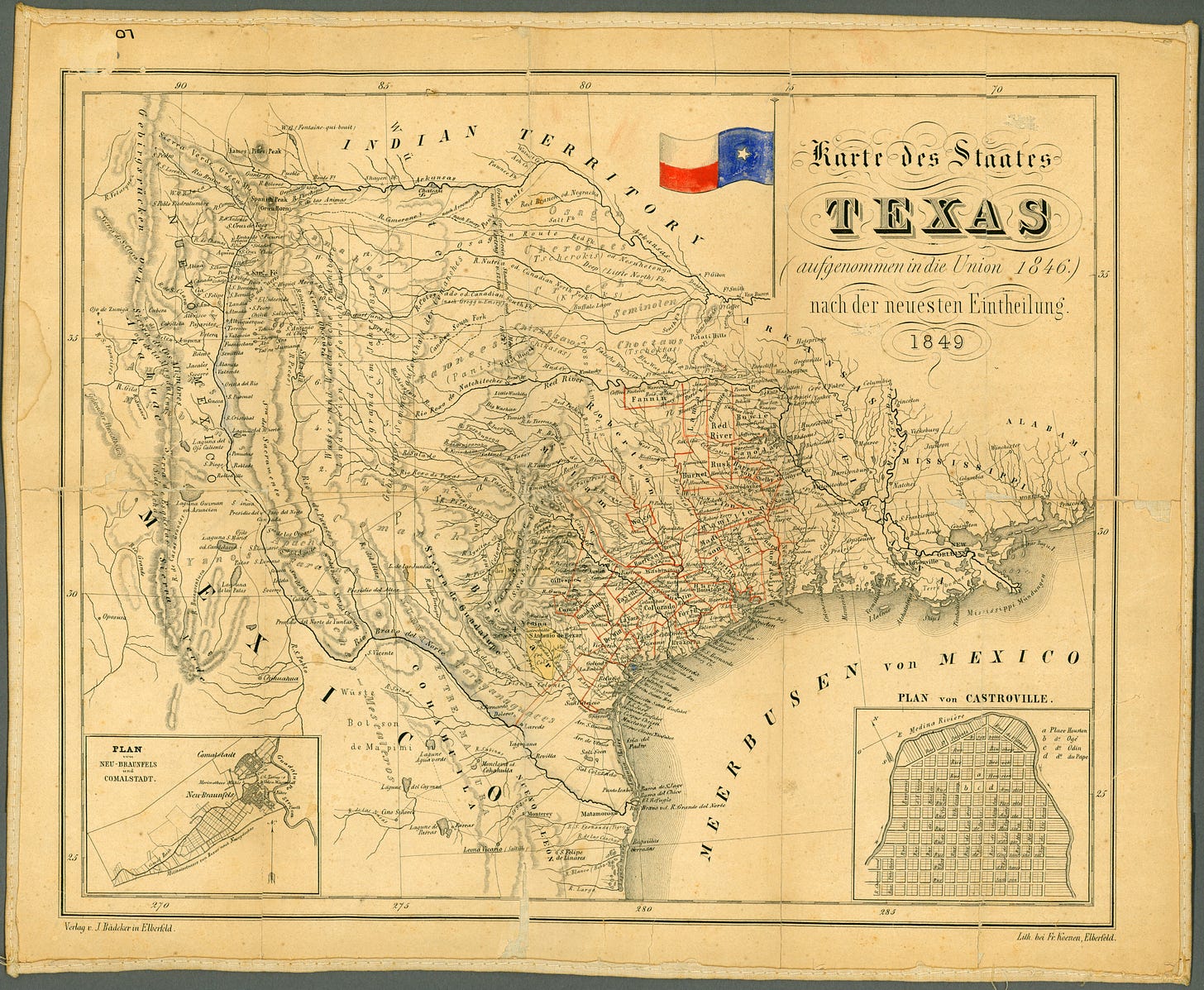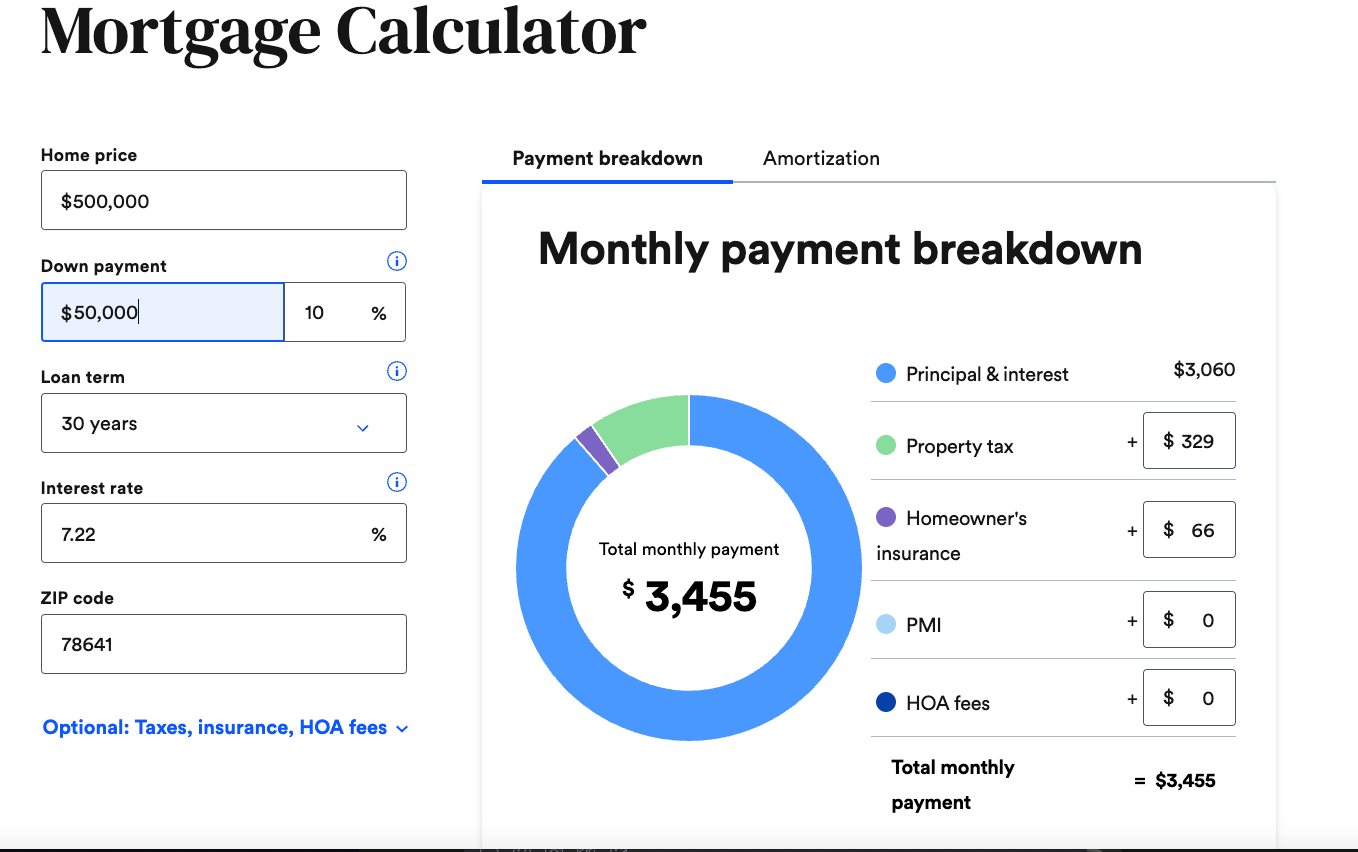Y'all Come On Down
The unspoken question is whether to stay in a place that a person grew up knowing and loving, or does it make more sense to leave and live where politics are less stifling, real estate is more affordable...and the electrical power grid is reliable.

"Twenty years from now if there is some obscure Trivial Pursuit question, I am confident I will be the answer." - Ted Cruz, U.S. Senator, (R) Texas

The question had never occurred to me. I hear it now, though, on a fairly frequent basis. There are occasions when it is implied and delivered as a statement, too, which might have once stunned me given the persons I have heard speaking the notion. I think many, many rational people are asking themselves the same question, if only privately. They do not want to frame their concerns as an inquiry so they take the form of a complaint, an analysis offered to an understanding friend.
“I just can’t take it anymore,” I was told by a close pal recently. “I’m overwhelmed. The politics and the weather and the traffic. Everything that just didn’t exist when I was growing up in Texas is now in my face, every damn day. I can’t think of anything to do about it other than leave because none of it is going to change. And the thought of that just kills me. My kids and grandkids are here, though, and they are the only reason I still am.”
The unspoken question was whether to stay in a place that person grew up knowing and loving, or did it make more sense to leave and live where politics are less stifling, real estate is more affordable, summers are not as potentially deadly, social services are offered that assist the disadvantaged, and property taxes don’t make it almost impossible to own a home, damn near a fourth of the population isn’t without health care, and the electrical power grid is reliable. Those are just some of the economic and social dynamics confronting Texans, and they have reached a kind of critical mass that is causing an unknowable, but almost certainly large number of lifelong and long-time residents, to consider abandoning the Lone Star state.
We came down here in 1975, driving a little blue Opal Kadett station wagon from Michigan, just five months after being married. In the dead of a November night, we rolled through the brush country not far from where political strongman George Parr had killed himself on his ranch a few months previously, a story which has become an endless curiosity and topic of research for me. In McAllen, we were about as far from our hometowns and families as we might be and remain in the same country. As is the case with youth, we saw prospects and opportunity even as a national news magazine’s front cover informed us we had taken up residence in “America’s Third World.”
Optimism was not in great supply in the Rio Grande Valley in the last quarter of the previous century. It was a hard place to love but easy to enjoy. The 150 mile stretch of the river from Rio Grande City to Brownsville reported the highest incidences of intestinal parasites in the U.S., the lowest literacy rate, highest unemployment, worst rate of infant mortality, biggest number of outdoor privies, most homes without electricity or potable water, lowest per capita income, lowest percentage of college degrees, and a growing list of other failures that threatened any hopes for a quality of life. But it was a good place to be a journalist looking for stories to sharpen skills in a nascent career.
My job at the radio station enabled me to acquire reporting experience, we found an affordable rental house, fully furnished and a few miles from the border, for $230 per month, which was reasonable even on my $160 a week salary. Weekends we went to the beach at South Padre Island or took trips to Corpus Christi and San Antonio or Austin to see friends. Mostly, though, we crossed the Rio Grande to Reynosa, Matamoros, and Nuevo Laredo, and took innocent driving trips for weekends in the mountains of Northern Mexico. Texas was fascinating because of its geography, the history with Mexico, alive and accessible, while growth and development did not appear unconstrained.
Much, of course, has changed in the unrolling years, and that is the way of the world. Laredo, where I landed my first TV news job, a community of less than 100,000 people at the time, has now become one of the busiest land ports on the planet. I do not recognize the city where I spent two years of my life, nor did I expect to have easy familiarity. Laredo deserved progress, and had long been sold short by Texas lawmakers who saw it as just another dusty border town. The inevitability of its progress evaded the people who were elected to allocate resources to serve the people of this state, which remains a central issue in confronting the future of Texas.

I have lived most of my life in Austin, and growth was an issue when I arrived even in the late seventies. Mostly, though, the city was a slow-moving college town that was home to the state government and a few tech companies like Texas Instruments. The conversations over high rises and taxes and traffic and real estate, which existed in a considerably less energetic form in those days, have become increasingly intense to the point where humor is the only relief because the resolution of problems seems improbable. Hell, I’ve even tried my hand at writing an Austin joke.
“How many Austinites does it take to change a light bulb?”
“One hundred. That’s one to change the bulb, and 99 to talk about how great the old bulb was and what wonderful light it gave off.”
Yeah, it’s not funny. None of it is. Starter homes are now a half million dollars even way out in the exurbs. We took our daughter and son-in-law to look at a modest new development, probably an hour from downtown, and there were about 80 properties in narrow lots. The floor plans were all two-story and went from just over 1200 square feet to around 2000. There was nothing special about the homes, no brick facade, all hardy plank, stick built, builders’ low cost carpeting and hardware on the doors and plumbing, but the least expensive was just under $400,000 and the top was right at a half million.
These were nice, but unremarkable properties that a little over a decade ago likely would have been on the market in the $250k-300k range, and under $200k in the nineties. The graphic below shows the difficulty of a young couple or family breaking into the Texas real estate market. Assuming they even had $50,000 for a down payment, the high price of the property, mortgage interest rates, and property taxes, make any monthly payment daunting, if not impossible. There are, increasingly, federal government assistance programs for first time homebuyers to help with closing costs and down payments, but they max out at three percent of the home’s value, which has a dramatic increase on the monthly mortgage, unless the buyers can come up with an additional $30,000, and most cannot, of course.

The public has taken some note of a recent measure passed by the legislature that has, at least as its intent, to lower the property tax burden. A new law will expand the homestead exemption from $40,000 to $100,000, which is a portion of the value of your house that cannot be taxed if it is your primary residence. School property tax cuts approved in the same bill will lead to an average reduction in homeowner tax bills of $1300. Nonetheless, lawmakers sent no new money to school districts even though Texas ranks near the bottom in per-pupil spending.
While this move helps homeowners, it does nothing to resolve the financial pressures on Texas schools. Despite a record $34 billion dollar budget surplus, extremist Republicans running the state government have not yet found a way to give teachers a pay raise, either a token or meaningful increase. Unless new funding is forthcoming, schools will continue to struggle to balance budgets and there will be increasing pressure on county tax assessors for higher property valuations to provide the dollars lost to tax cuts. This does not even consider the governor’s determination to pass school vouchers, which will allow parents to move their children to private schools and drain even more funding from public education.
Meanwhile, the Lt. Gov. utters absurdities to explain why thousands of Texas teachers are leaving their jobs.
“They’re leaving because they’re told to teach some things they don’t want to teach about sexuality to kids in the third grade. They don’t like the pornographic library books that are in their school libraries,” he said.
Dan Patrick is, quite possibly, the most ignorant and lying politician to ever hold public office in a state whose politics have been made famous by ineptitude and craven ambition. The fact that he continues to be elected is one of the most damning characteristics of Texas voters.
And still, people flock to Texas. From New York. And California. Wisconsin and Michigan. All those places that once made up the Rust Belt, which will one day rise again because they have a reliable supply of fresh water. We do not, in Texas. Every newcomer is another straw in our drying up reservoirs, evaporating water at record rates in the unrelenting and historic heat. Midwesterners, in love with their lawns, surround their new Texas homes with grass, and then they water their investments, regardless of the fact nature did not intend most of those grasses to grow in this environment. Meanwhile, up on the High Plains in the Texas Panhandle, the Ogallala Aquifer, an underground sea in the nation’s midsection, is drawing down to dangerous levels because of drought and heat. An estimated 30 percent of the irrigation water for this nation’s farm crops comes from the Ogallala, and lack of rain and snow is preventing it from recharging.
While water supplies dry up, teachers quit their jobs, taxes remain burdensome, rural hospitals are closing, and climate change is a Chinese lie, the governor of this formerly great state is spending billions, not on teachers, but to send troops, troopers, and materiel to block the border. He is busy violating treaties with Mexico while also endangering the lives of desperate people approaching the river. When not busy with putting people at risk of death, Greg Abbott and other state leaders worry that children dealing with gender and sexual orientation complications might get medical treatment that assists their adjustment to adulthood. The guy who says parents ought to have a right to choose where their children attend schools does not think those parents have the authority to decide what is best with regard to issues of sexuality; that’s the Republican government’s job.
I love this state, and have spent multiple decades traveling its roads, visiting cities and towns as a journalist and just a wanderer, and what has long amazed me is its politics. I do not think I’ve met two dozen people who have left me angry or offended, and yet we keep electing angry white men to lead us. Don’t all semi-intelligent people wonder how Ted Cruz remains a U.S. Senator from Texas? The man dreams up concerns like his conviction that Disney programming will soon depict Mickey Mouse and Pluto doing the nasty. Notwithstanding Cruz’ zoophilia fantasies, how in the hell does he not have other topics that might matter to his constituents? Is Ted too busy grooming Mickey Mouse?
His nonsense is an example of why I’ve heard the conversation about moving too often from sane people who have built their lives in Texas, but are actually contemplating leaving. They don’t want to go but the talk is always about politics and climate change. Property taxes and traffic in the major cities, as mentioned earlier, are also driving decisions. Many are hopeful the state will move to a more progressive political electorate but the purple dream still seems evasive, much less a Democratic majority. Restoring sanity to Texas public policy is still likely to take years, and too many people are tired of waiting.
“Ya know,” a pal recently told me, “I’ve been politically active and very involved in this state since I moved here forty-some years ago. So has my wife. Just doesn’t seem to matter, and I’ve reached the age where I’m tired of fighting. I think it’s somebody else’s job. Am I supposed to spend these precious years at the last part of my life being wrapped up in what are apparently hopeless political fights? If this is the Texas that people want, let them have it.”
He left with his wife, who is one of the fiercest political fighters I have ever known, and they moved to a blue state after selling their Austin house at a nice profit. They are not retired and are able to remotely perform most of their work. There is no way they are anomalous. There are many who have already departed and I am certain many more are packing. Texas has profound problems, and current elected officeholders are worried about something called “woke” social issues. They are banning books and inviting religion into public schools. Making it harder to vote, which reduces the odds of getting rid of radical conservatives. The only hope left is the vote, which gets attacked whenever Democrats win.
Texas isn’t woke; it’s broke.